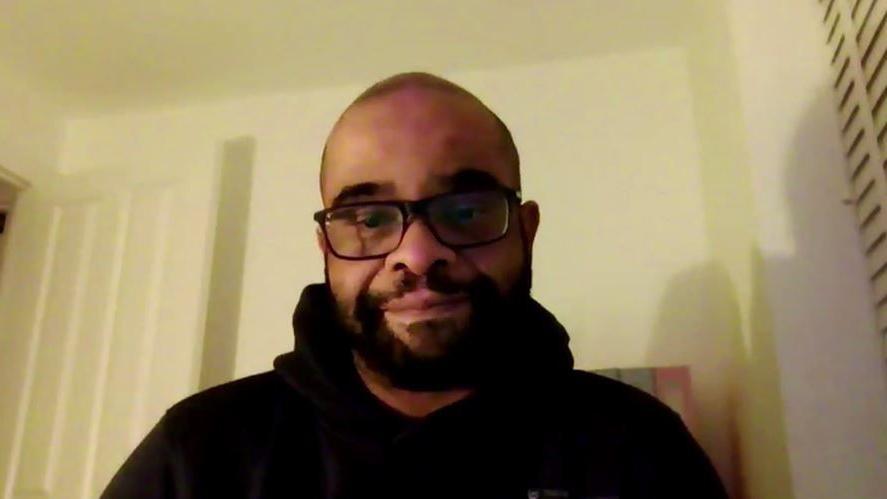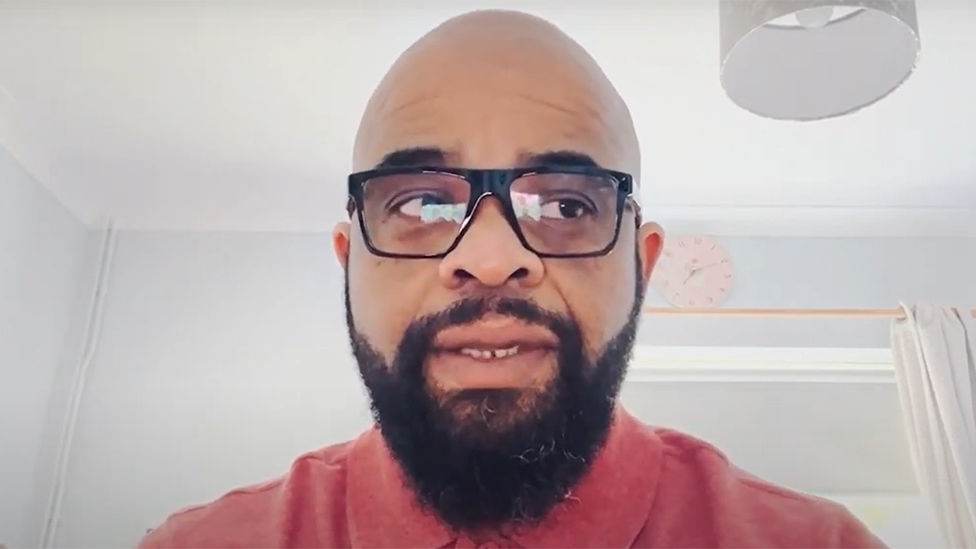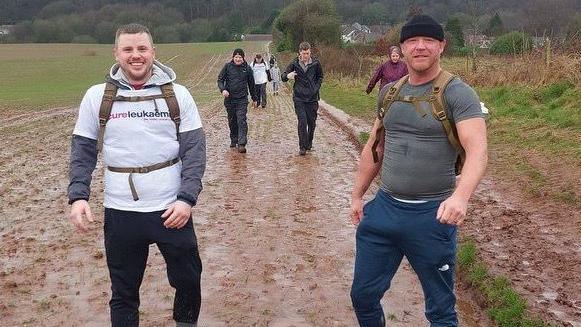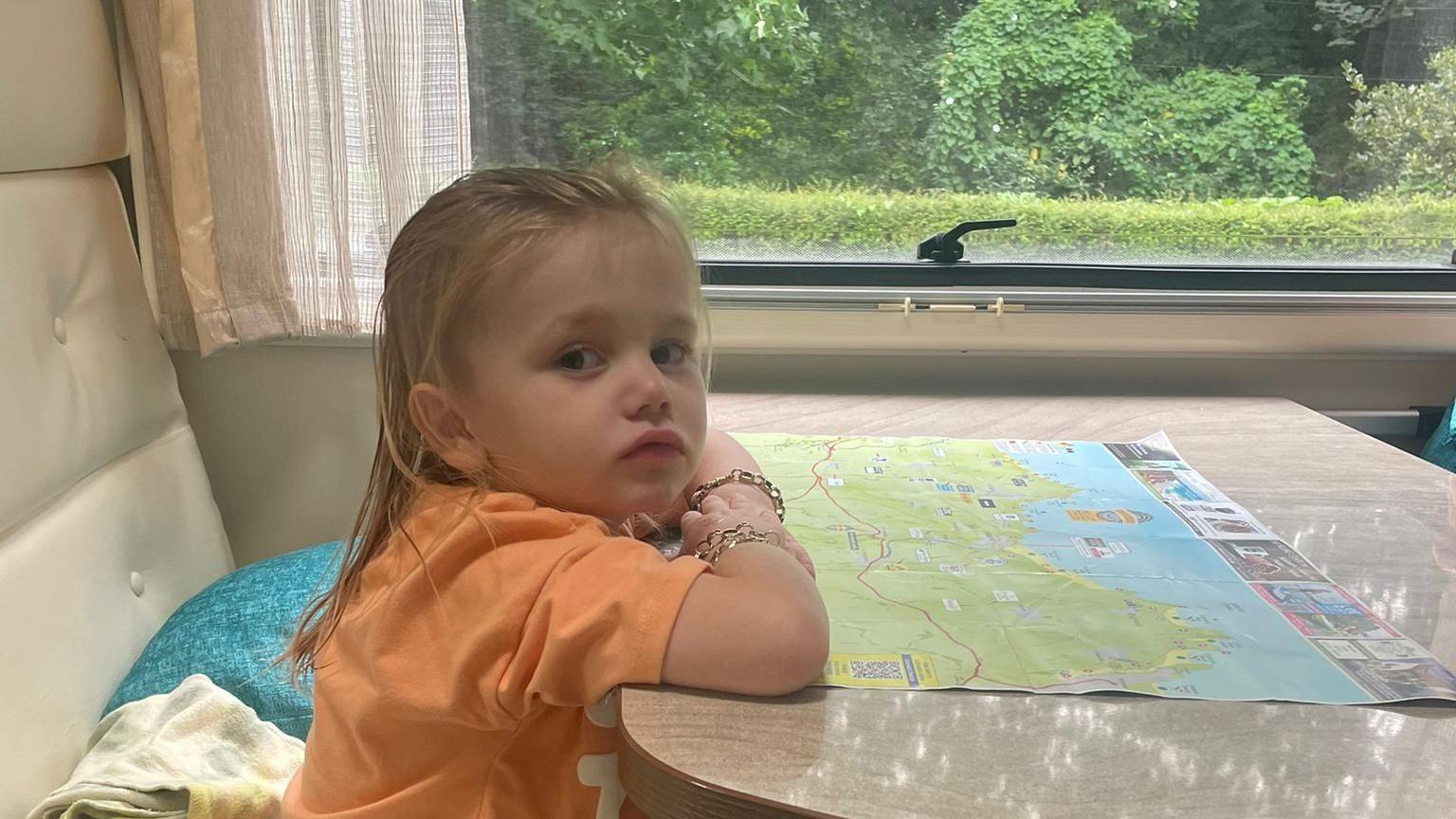Man unable to sleep over concern for sick brother

John O'Connor's most likely match is of of African or Caribbean heritage
- Published
A man says he is struggling to sleep over his concern for his sick twin brother who needs an urgent transplant.
John O'Connor, 53, from Telford, was diagnosed with a rare type of lymphoma called Sezary syndrome in 2022.
Now his brother Philip O’Connor is calling for people, particularly of African Caribbean decent, to register as stem cell donors.
There is currently no match on the worldwide register for John, but on Saturday a registration drive was held in Birmingham in a bid to find a compatible donor.
It was organised by four charities - African Caribbean Leukaemia Trust, DKMS UK, Race Against Blood Cancer and Anthony Nolan - who have united to find John a match.
A spokesperson for DKMS said more than 200 people registered at the event with the samples now being processed in its laboratory.
They added: "There is still much more to be done to engage communities and dispel myths about blood cancer and stem cell donation."
Discussing his brother's health, Philip said: "He is my twin brother, my best friend, my best mate.
"I cannot sleep at night because I am constantly worried about John.
"For a long time, it has been me and him - it still is me and him and I want it to continue being me and him."

Philip O'Connor described his brother as his "best friend"
John’s family, including Philip, were the first to be tested as potential stem cell donors.
None were a match which means John is that his only chance of survival is now a stem cell transplant from an unrelated donor.
John is of Jamaican heritage so a compatible donor for him is likely to be of African or Caribbean heritage.
Patients in the UK from ethnic minority backgrounds, like John, have half the chance of finding a matching donor on the stem cell register compared with people of white European backgrounds.
Save a life
Philip added: "There is such a low population of people of African Caribbean heritage on the register list itself - we need to get more people on it.
"You could save a life, not just my life but anybody's life."
Joining the stem cell register is a simple process that involves a quick mouth swab.
Sophia Oriolowo, from DKMS, said: "If you are found to be a match for someone, then in nine out of 10 cases, donating your stem cells is a simple process, similar to giving blood.
"You could be giving someone a second chance at life."
Related topics
- Published14 February 2024

- Published9 February 2024
